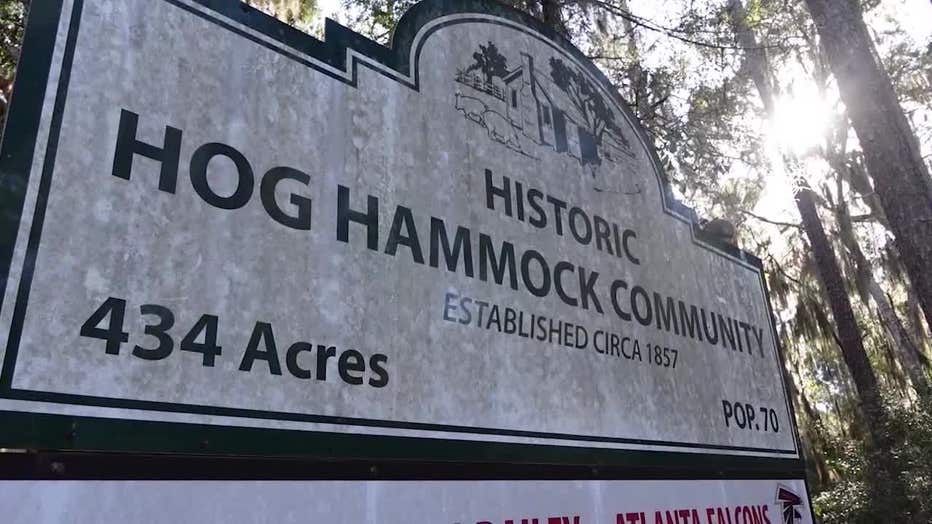Gullah-Geechee lawsuit: Judge dismisses suit by former Georgia slaves over technicality

SAVANNAH, Ga. - A Georgia judge has thrown out a lawsuit accusing local officials of race discrimination when they approved zoning changes to one of the South's last Gullah-Geechee communities of Black slave descendants.
Superior Court Judge Jay Stewart ruled the civil complaint had to be dismissed because of technical errors unrelated to the rights violations it alleged. His order allows the Southern Poverty Law Center to file a new version of the lawsuit on behalf of residents of the tiny island community of Hogg Hummock.
"Under Georgia law, we are permitted to refile within six months, and we plan to file an amended verified complaint," Miriam Gutman, a lawyer for the residents, said in a statement Wednesday.
Residents and landowners sued in October after elected commissioners in coastal McIntosh County voted to weaken zoning restrictions that for decades helped protect their enclave of modest homes along dirt roads on largely unspoiled Sapelo Island.
The zoning changes doubled the size of houses allowed in Hogg Hummock. Residents say that will lead to property tax increases that they won't be able to afford, possibly forcing them to sell land their families have held for generations. Their lawsuit asked a judge to declare that the new law discriminates "on the basis of race, and that it is therefore unconstitutional, null, and void."
Stewart's legal order Tuesday didn't address the merits of the discrimination claims. Instead, he agreed with McIntosh County's attorneys that the lawsuit clashed with a 2020 amendment to Georgia's state constitution that weakened the broad immunity from lawsuits granted to the state and local governments.
While that amendment enabled citizens to sue Georgia governments for illegal acts, it also stated that such lawsuits could no longer list individual government officers as defendants.

The lawsuit filed on behalf of Hogg Hummock residents not only named McIntosh County as a defendant but also its five individual commissioners.
"While McIntosh County is pleased with the Judge's ruling, we believe it appropriate to withhold further comment at this time," Ken Jarrard, an attorney for county officials, said in an email.
The judge denied a request by the residents' lawyers to amend their lawsuit by dropping the commissioners as defendants to avoid completely starting over. But he dismissed the case "without prejudice," meaning attorneys will be allowed to file a new version naming only McIntosh County.
Hogg Hummock, also known as Hog Hammock, sits on less than a square mile on Sapelo Island, about 60 miles south of Savannah. Reachable only by boat, the island is mostly owned by the state of Georgia.
About 30 to 50 Black residents still live in Hogg Hummock, founded by former slaves who had worked the island plantation of Thomas Spalding. Descendants of enslaved island populations in the South became known as Gullah, or Geechee in Georgia. Their long separation from the mainland meant they retained much of their African heritage.
The residents' lawsuit accused McIntosh County of targeting a mostly poor, Black community to benefit wealthy, white land buyers and developers. It also said the county violated Georgia laws governing zoning procedures and public meetings as well as residents' constitutional rights to due process and equal protection.
McIntosh County officials denied wrongdoing in a legal response filed in court. When commissioners approved the zoning changes for Sapelo Island in September, they insisted their intent wasn't to harm Hogg Hummock or change its culture.
Outside of court, Hogg Hummock residents have been gathering petition signatures in hopes of forcing a special election that could give McIntosh County voters a chance to override the zoning changes.

